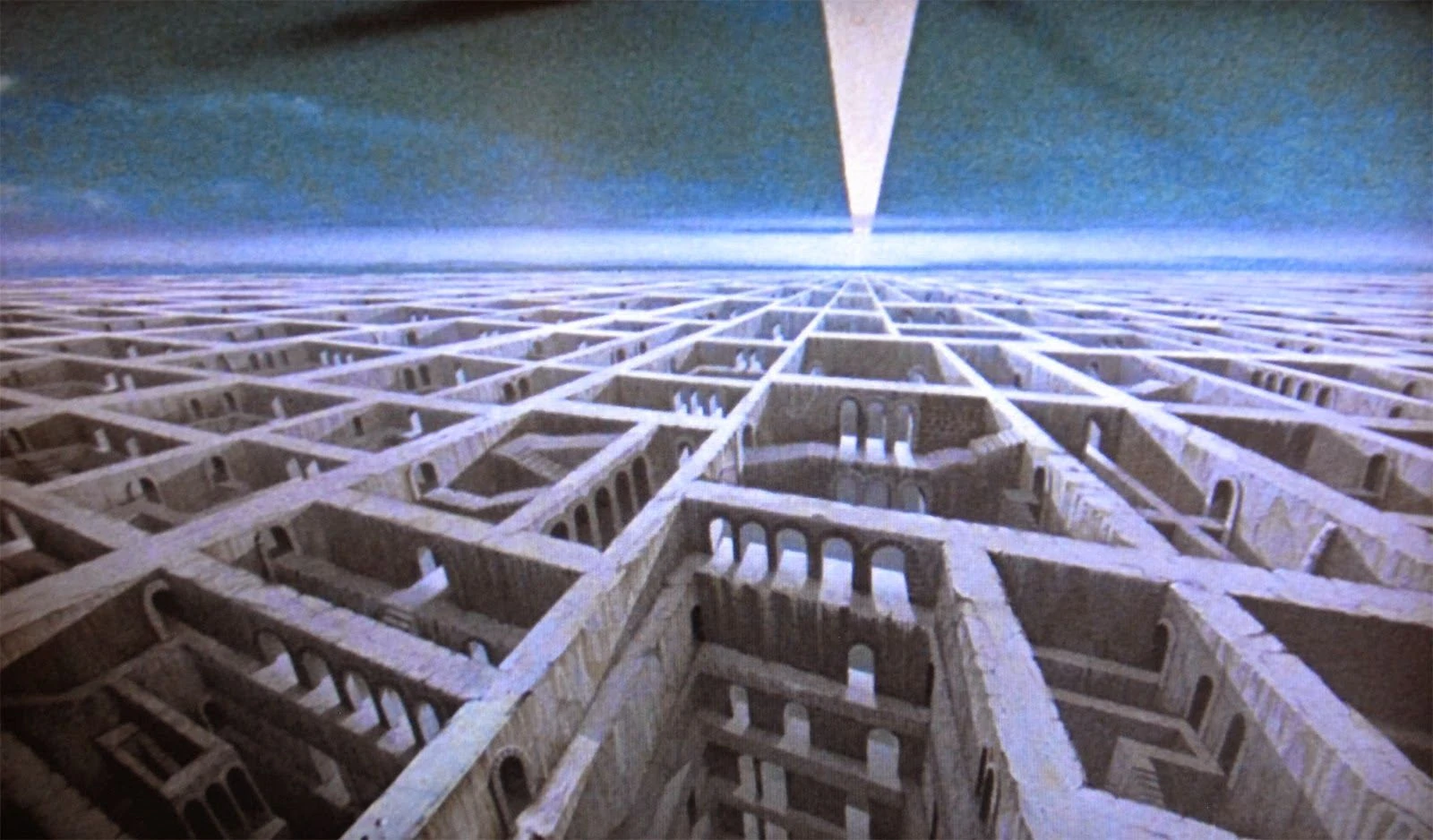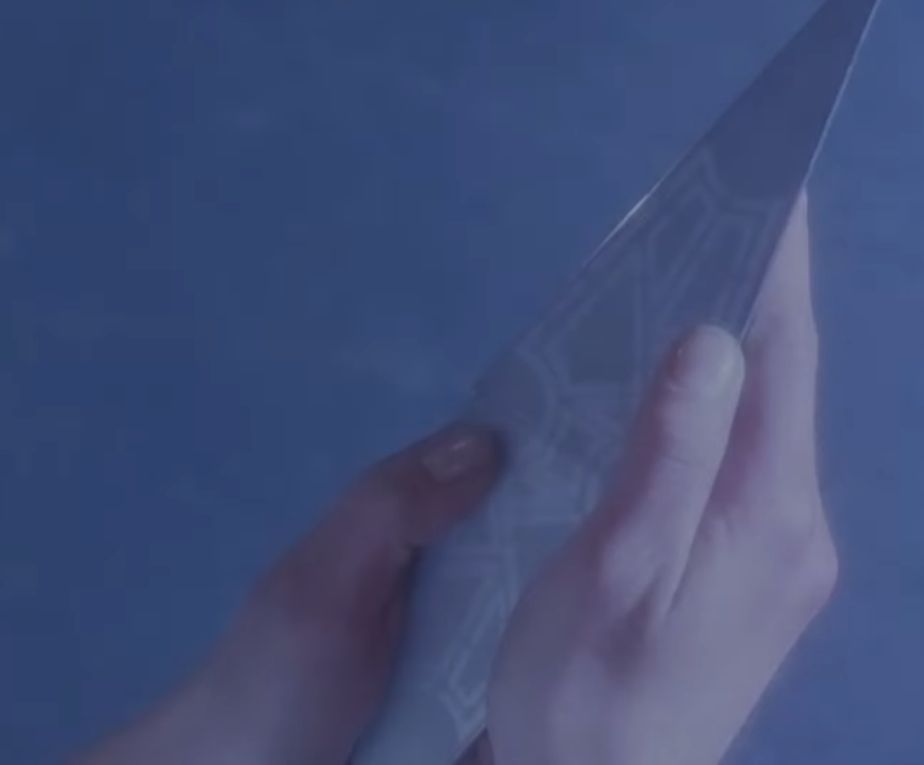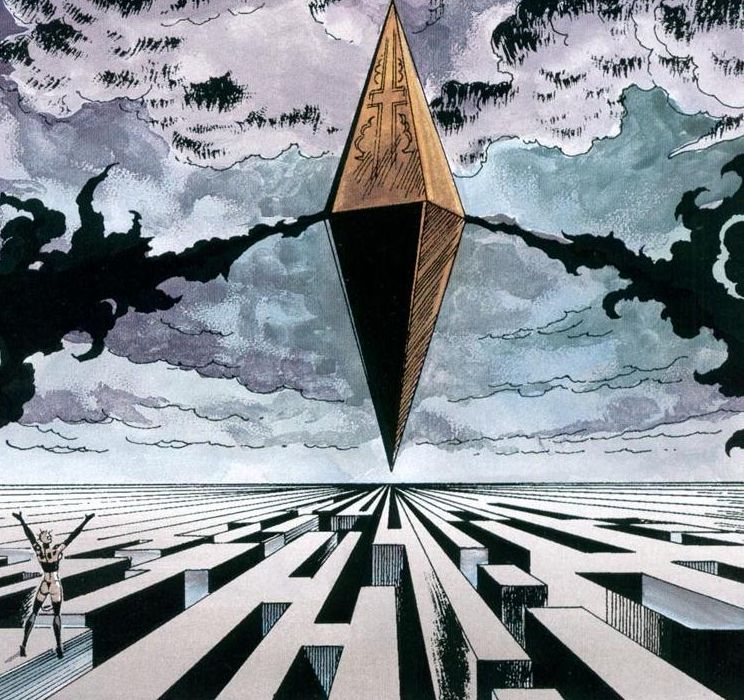For its intricate narratives and deranged, malevolent characters, the Hellraiser universe is well-known among horror enthusiasts. The Cenobites, commanded by Pinhead, are vicious monsters from a horrible dimension who are one of the franchise’s persistent foes. While the first Hellraiser film is the most well-known in the franchise, “Hellraiser II” is an excellent follow-up. It goes over some of the personalities and topics we have learned so far in great detail. The Leviathan, who was responsible for the birth of all Cenobites, including Pinhead, was also introduced in this film.
The picture does a good job of capturing Clive Barker’s vision of hell, which is depicted as a blue-lit maze filled with tormented souls. They are all tormented by their own specific afflictions, and Leviathan is undisputedly the Lord of Hell. In this aspect, it is safe to say he is Satan’s equivalence, but a cryptic message in the film suggests it was something far grander. It attempted to indicate that God was in Hell, and as a result, the Leviathan was revealed to be the deity in charge of all that happens in this version of hell. In this video, we will delve into the Hell Lord and teach you everything there is to know about this supreme being who rules over all of hell’s inhabitants.
Who Is Leviathan?

We were curious to learn the specific origin of Leviathan but it was never mentioned clearly. However, it has existed since eternity, and taking into account how long it has ruled hell, Leviathan could very well be the fallen angel from the Bible. It is the ruler of all dark forces and its incredible powers are unparalleled. Leviathan is fascinated by law and order, and humans are only a disturbance in his perfect world. They are chaotic and wrong, and Leviathan wages a war against the human realm using his Cenobite army.
Ancient legends suggest that Leviathan has existed since the earliest days of creation. With the creation of life, chaos spread across the world and Leviathan’s obsession with law and order was disrupted. Its form of retaliation was an effort to crush life as it tried to spread uncontrollably. However, its effort was futile and life slowly seemed to overwhelm his realm. Leviathan came up with a new strategy- to create a Euclidian design of apocalyptic proportions. Mankind provided the perfect prey for Leviathan, and it used man as a part of his dark design. With time, the human world began to bleed and it started growing increasingly similar to Leviathan’s world. Hell was returned to perfect order, but Leviathan continued its efforts to bring the human world at par with hell.
In the Hellraiser mythology, Leviathan, or the God of Flesh, Hunger, and Desire, resides in an extra-dimensional world called the Labyrinth. Thus, it has control over human cruelty, lust, fear, selfishness, and all other negative qualities. The Cenobites have been created by Leviathan in such a way that they can exploit these human weaknesses with their extreme sadomasochism. Leviathan appears as a giant, long, narrow octahedron that floats in the center of hell, and black beams of light are emitted from its center. The movie has depicted it as a huge living form of the Lament Configuration. It feeds off tormented souls, and either consumes the souls or turns them into Cenobites to do its bidding.
His Abilities & What Weakens Him

As the Lord of Hell, Leviathan has almost unlimited powers in this realm. It can create Cenobites in whatever way it pleases, and usually, the designs are suited to fulfill some purpose. It may look rather harmless in its geometric shape, but the black light can penetrate through the soul of anyone it falls upon. A damned soul or a sinner is made to feel their wrongdoing and nothing can be hidden from Leviathan. If the soul is deemed unworthy and incapable of becoming a Cenobite, Leviathan feeds upon it, and the others are changed into twisted sadistic creatures. It also has the power to trap individuals in an infinite time loop, and this can be reset by it whenever it wants to. It can also subject someone to relive some of their memories, and it did so with Kirsty and Spencer.
So, does this invincible godly entity of hell have any weakness? It turns out that the source of its strength is also a chink in the armor for Leviathan. It is weakened when a human solves the Lament Configuration, and it transforms into a cube shape. This allows an opportunity for all the trapped souls to escape. Even though it almost seems impossible to destroy Leviathan permanently, the possibility was explored in a comic book. The Ostlund Construct was supposed to be a blueprint of hell’s destruction, and it only failed because a crucial mechanical part required to complete the destruction was in Pinhead’s possession.
Towards the end of “Hellbound: Hellraiser II”, Tiffany solves the puzzle box again, and this somehow transforms Leviathan into a larger puzzle box resembling the Lament Configuration. Channard is killed and several souls flee during the process. It is not revealed if the changes destroyed Leviathan, but the future films show Pinhead in charge of the puzzle box. The troubled souls are no longer trapped in the labyrinth but in their own hell. However, it does sound unlikely that an immortal, godly entity could be permanently destroyed. This is one mystery that the franchise can bring up again.
Hellbound: Hellraiser II Introduces Leviathan

We have already mentioned how “Hellraiser II” deals with the whole Leviathan angle. The movie opens with some background on Pinhead, as his past life is revealed to us. Kirsty Cotton from the first movie is in a psychiatric hospital and is still dealing with the trauma of things that she had seen. She tells Dr. Phillip Channard and his assistant her entire story. She also seems to have disturbing nightmares where her father pleads for help from hell. Meanwhile, Channard is obsessed with the Lament Configuration, and how it can act as a portal to Hell. He masters Julia’s resurrection and brings her victims to feed on. He even gets Tiffany to open the Lament Configuration because he desires to experience Hell. The Cenobites emerge but Pinhead stops them from killing Tiffany because she was only fulfilling Channard’s desire. Julia betrays him as well, and he is turned into a Cenobite. Kirsty heads for hell using the box and along with Tiffany, she tries to find an escape route after searching for her father.
When Julia is resurrected, she reveals that Leviathan is the lord of the labyrinth, and it becomes clear that it rules over all those who reside there, including Pinhead. She was released to bring Dr. Channard into the hell realm, and Julia was only being used as a medium of bringing more troubled souls from Earth. Later, when Kirsty tries to escape, Leviathan is continuously seen blaring an eerie horn sound. The music composer of the movie later revealed that this sound was a message from Leviathan in Morse Code, and it translates to “God in Hell.”
The residents of hell are obsessed with pleasing him in every way possible, and they perceive him as their God. When Kirsty reminds Pinhead and the other Cenobites of their past lives, they do turn against Leviathan, but such acts of treason are met with swift consequences! The Channard Cenobite is used to kill them all, but it still allows Kirsty the chance to flee from hell.
Finally, Tiffany and Kirsty go back to hell to finish what they started. They realize that power lies in the puzzle box. Tiffany solves it once again, tricking the Channard Cenobite. They get back to the real world just as the portal closes.
Our Final Words

This mystifying and powerful antagonist certainly made the story interesting. Previously, we only had Pinhead and his ruthless antics, but this movie opened our eyes to the one pulling the strings and controlling all forms of evil! This character can be restored and brought up again because there is no clear conclusion that suggests his destruction. It would certainly be fun to see something powerful enough to control Pinhead, picking off human victims once again!
